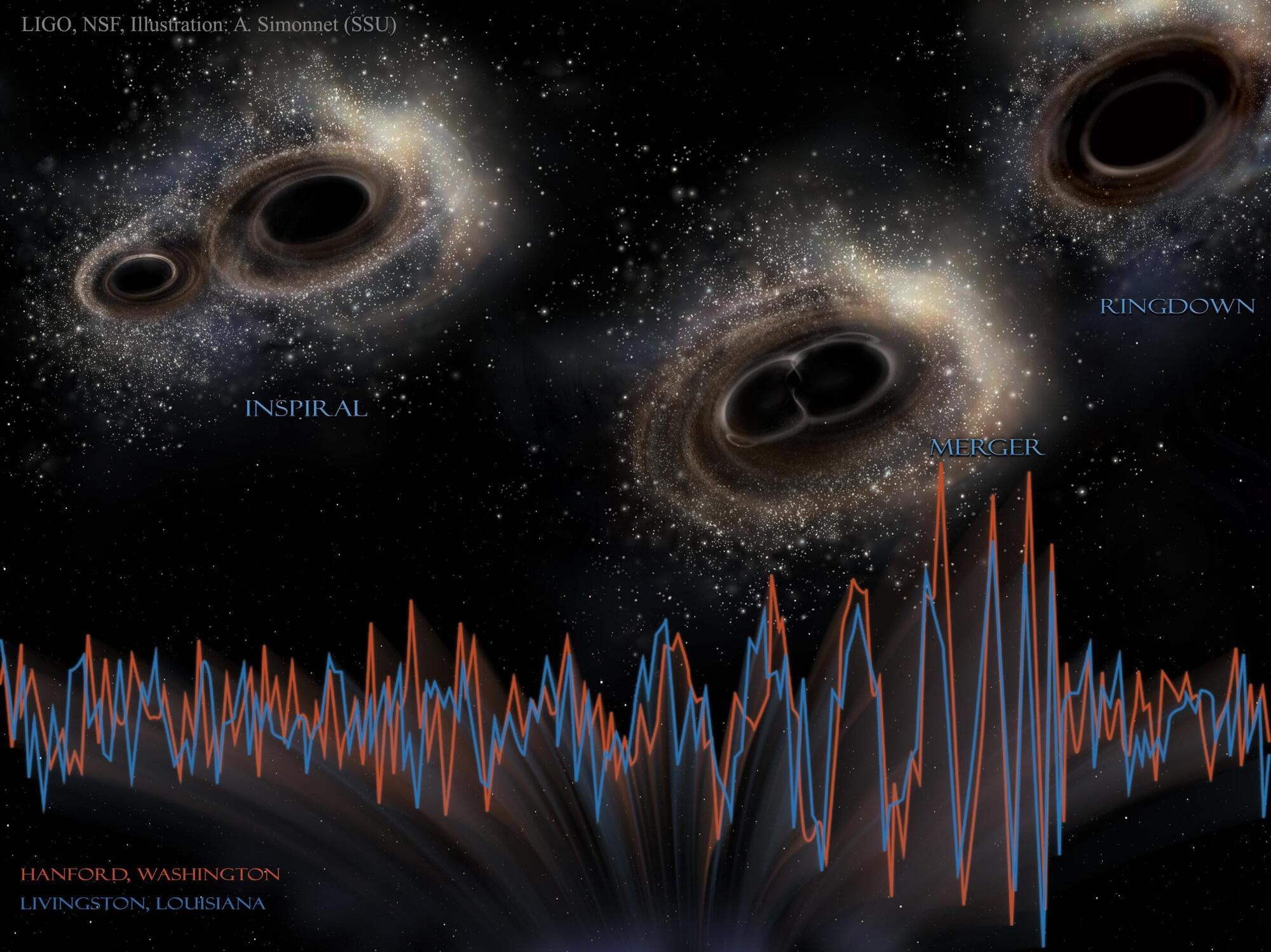Extreme cosmic events such as colliding black holes or the explosions of stars can cause ripples in spacetime, so-called gravitational waves. Their discovery opened a new window into the universe. To observe them, ultra-precise detectors are required, but designing them remains a major scientific challenge for humans.
Researchers at the Max Planck Institute for the Science of Light (MPL) have been working on how an artificial intelligence system could explore an unimaginably vast space of possible designs to find entirely new solutions. The results were recently published in the journal Physical Review X.
More than a century ago, Einstein theoretically predicted gravitational waves. They could only be directly detected in 2016 because the development of the necessary detectors was extremely complex.
